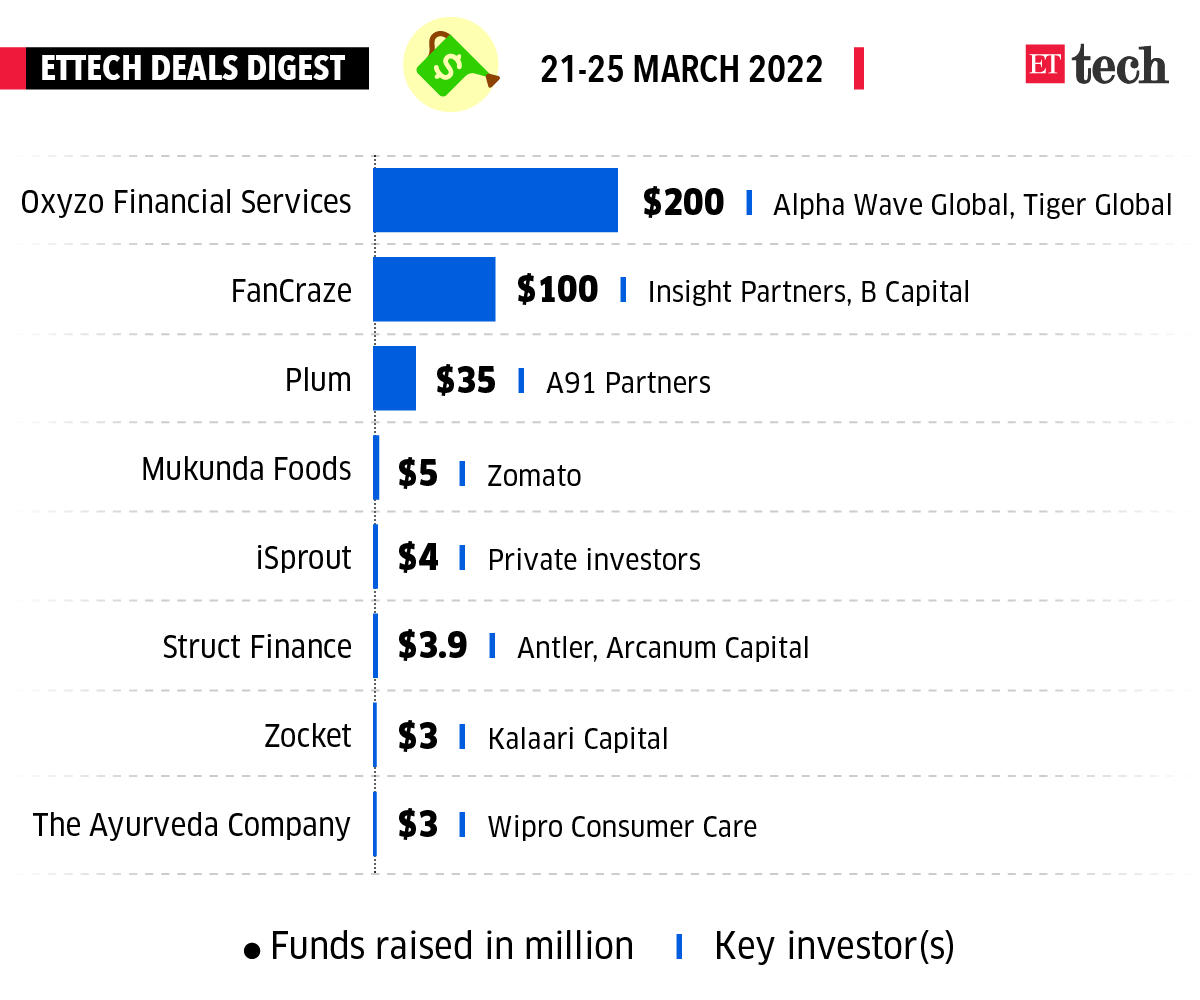
A number of global companies have set up subsidiaries in the country, including Samsung, Microsoft, Snap, Boeing, Siemens and Ericsson, but Ukrainians themselves have produced several well-known tech startups.
Here are a few:
WhatsApp: Whatsapp was cofounded in 2009 by Jan Koum, a Ukrainian emigrant to the US. Koum was born in 1976 in Fastiv, the city where Russia began its invasion in February. Facebook acquired WhatsApp for $19.3 billion in 2014.
Grammarly: The ubiquitous grammar correction platform was founded by three Ukrainians – Max Lytvyn, Alex Shevchenko and Dmytro Lider. Headquartered in both Ukraine and the US, the company is currently valued at $13 billion.
Gitlab: The popular devops collaboration platform was founded by Dmitriy Zaporozhets and Sid Sijbrandij in 2014 and is based out of Ukraine. One of the world’s most successful startups, it has more than 1,200 employees in 65 countries.
Traces.AI: The company was founded by two Ukrainian techies, Veronica Yurchuk and Kostyantyn Shysh, in 2014. Traces.AI uses artificial intelligence technology to analyse over 2,000 physical traits of a person using security cameras.
Petcube: Established in Kyiv by Alex Neskin, Yaroslav Azhnyuk and Andrey Klen, the company offers wifi home cameras for pet owners to watch, play and talk to their pets any time through a mobile app. In 2012, after neighbours complained about Neskin’s dog Rocky barking while he was away at work, he built a camera with a laser pointer that let him interact with his pet via the Internet. The following year, Petcube was born.
Jooble: Founded in Ukraine hy Roman Prokofiev and Eugene Sobakarov, Jooble says its mission is to help people find their dream job. It has more than 90 million monthly users in 71 countries, and is the second most visited employment service in the world and among 500 top visited websites globally, according to SimilarWeb.
IT services powerhouse
Before 2022, Ukraine was also on its way to becoming a global IT services powerhouse, ranking 11th among the world’s top offshore software development countries.
In 2015 the country had just 74,000 software developers. This jumped to 166,000 by 2017 and hit 250,000 in 2021.
IT outsourcing in Ukraine was the 2nd largest export services industry, with nearly $5.7 billion revenue generated in 2020. This was expected to hit $8.4 billion by 2025 but that was before Russia invaded its neighbour.
Written by Zaheer Merchant in Mumbai.
TOP STORIES BY OUR REPORTERS
Zomato to test 10-minute food delivery in Gurugram soon

Zomato will soon launch its 10-minute food delivery service Zomato Instant, founder Deepinder Goyal wrote in a blog post on Monday.
Called it: We were the first to report on March 18 that the food delivery platform was in talks with restaurant partners and cloud kitchens to pilot 10-minute food deliveries in Gurugram.
Details: Goyal said the company would deliver food in 10 minutes using “a dense finishing stations network” located near high-demand neighbourhoods.
These “finishing stations” will be about 700-1,200 square feet in size. Zomato will use warehouses of Hyperpure (its business-to-business supplies business for restaurant partners) and rent new facilities in high-density areas, a company spokesperson said.
Plan ruffles feathers: Zomato’s 10-minute food delivery plan came in for criticism from consumers and restaurant owners, who took to social media to vent, prompting restaurant aggregator’s founder and CEO Deepinder Goyal to tweet a series of clarifications on Tuesday.
What they said: Many restaurant executives told us they won’t be able to offer fresh food in 10 minutes even as Goyal clarified on Twitter that the initiative would only be for “popular and standardised items” in nearby locations.
BigBasket set to launch one-hour delivery: Amid the buzz around 10-minute grocery delivery, Tata-owned egrocer BigBasket is set to unveil its one-hour delivery service, BB Express, with 7,500-8,000 products on offer.

Typically, 10- to 20-minute delivery services can offer only about 4,000 products as they prioritise speed over selection.
The service will be launched next month and will be powered by the company’s 62 dark stores, cofounder and chief executive Hari Menon told us.
Lok Sabha approves crypto tax

On Friday evening, the Lok Sabha approved the Finance Bill 2022, which includes the new tax framework for crypto assets that Finance Minister Nirmala Sitharaman had proposed in her budget speech in February.
Sitharaman, who moved the bill for consideration and passage in the Lok Sabha, said the government was yet to decide whether to regulate or ban crypto, and that the 1% TDS on all crypto transactions was “not an additional tax”.
‘Used for bribes’: BJP MP Nishikant Dubey said in the Lok Sabha on Friday that crypto is used for paying bribes and laundering money, even as the lower house moved to pass proposals that would heavily tax these assets.
Dubey, the MP from Godda, Jharkhand, said, “We have been talking about crypto since 2012-13, and all RBI governors during this time have said that crypto runs on the darknet (sic), that represents the future of hawala (money laundering), and that efforts should be made to stop it. In our standing committee report in 2013, we mentioned that cryptocurrencies were a looming threat to the world. But the UPA government didn’t pay attention to it.”
Crypto firms ditch IPL: Earlier in the week, top crypto exchanges in India collectively decided to not advertise during the Indian Premier League (IPL) this year, three sources told us.
The decision was taken by the Blockchain and Crypto Assets Council (BACC), which has more than two dozen crypto exchanges and crypto-related companies as members, said Nischal Shetty, chief executive of crypto exchange WazirX. BACC is part of the Internet and Mobile Association of India.
Data centre firms seek captive fibre to ease connectivity woes

What’s the issue? Current laws, under which companies must depend on telecom service providers for the fibre, increase prices, makes the process more time-consuming, and affects ease of business, senior industry executives told us.
The data centre sector does not want to be governed by the same rules as telecom operators since it will become expensive and difficult to lay the fibre.
Industry’s pain points: India’s data centre industry is expected to attract investments worth Rs 70,000-72,000 crore over the next five to 10 years, driven by large corporate groups and cloud service providers, according to an estimate by ratings agency Ind-Ra.
But a lot remains to be done, say stakeholders, as the data centre ecosystem is facing quite a few pain points.
Despite the government, corporations and startups depending heavily on Cloud computing and data centre solutions providers, and the recent budget proposal conferring “infrastructure” status for the sector being unanimously welcomed, issues around power sourcing, captive networks, procuring equipment and ease of doing business remain major irritants.
Call to commercialise data: The government’s open data policy, which recommends monetisation of data, must be encouraged, and the country needs to allow commercialisation of data, S (Kris) Gopalakrishnan, cofounder of Infosys and chairman of the non-personal data (NPD) committee, told us in an exclusive interview.
Since the legal framework around data is evolving, India must provide leadership to balance private and public interests and spur economic activity around data, Gopalakrishnan said.
OfBusiness lending arm Oxyzo turns unicorn with maiden external funding

Oxyzo Financial Services, the lending arm of SoftBank-backed OfBusiness, raised $200 million in its first external funding. With a valuation of $1 billion after the funding, Oxyzo is the latest addition to India’s growing list of unicorns.
The round was co-led by Alpha Wave Global and Tiger Global with participation from Norwest Venture Partners, Matrix Partners and Creation Investments, Oxyzo chief executive Ruchi Kalra told us.
New Delhi-based OfBusiness was valued at nearly $5 billion last December after raising $325 million. Oxyzo has since been carved out of the group and has now raised external capital.
Meesho served notice on violations of legal metrology rules

‘Final reminder’: The department sent a ‘final reminder’ dated January 21 to the Bengaluru-based firm, seeking its response after sending a notice to Meesho’s parent Fashnear Technologies on December 31. In the January notice, the department said if the company didn’t respond within a week, it would be ‘constrained’ to move court.
Was fined last year: We have reviewed the notice, which mentioned previous instances in which Meesho failed to comply with the legal metrology rules. From it we learnt that Meesho had at least once paid a fine of Rs 75,000 last year for violating the rules.
Branded makeover: Meanwhile, Meesho is looking to enter the branded products category as it expands its direct-to-consumer (D2C) ecommerce business, as we reported earlier.
Pivot: According to sources familiar with the company, about 80% of Meesho’s users and 65% of transacting users are customers of its direct selling business.
But now it is looking to capture a larger share of people’s wallets by going after “affordable brands” in categories like beauty and electronics, sources told us.
The news comes as Meesho is trying to take on bigger rivals such as Flipkart and Amazon India.
Investors put top execs under the microscope after spate of controversies

Why? Several high-profile promoters have of late become embroiled in controversies that could potentially put the future of their companies in danger.
The BharatPe saga — in which questions were raised about the conduct of cofounder Ashneer Grover, who recently resigned from the company — and others like it have made investors wary.
More scrutiny: Some are now hiring investigating firms and forensic teams at the Big Four accounting companies to find out how, for instance, CXOs behaves with their subordinates, whether they gets into unnecessary arguments on social media, whether they use any illegal substances, and even whether are any pending traffic violations against them.
ETtech Deals Digest

Reliance Retail picks up 89% in online lingerie retailer Clovia: Reliance Retail has acquired an 89% stake in online lingerie retailer Clovia for Rs 950 crore. The deal includes a primary investment and secondary share sale, according to a statement by the company. The founding team and management of Clovia will own the rest of the stake in the firm, Reliance Retail Ventures added in its statement on Sunday night.
Ola says it will acquire financial services firm Avail Finance: Ride-hailing firm Ola said it has entered into an agreement to acquire Avail Finance, a platform which provides financial services and loans to blue-collar workers. The transaction is still awaiting approval from shareholders, the company said.
UAE’s Cypher Capital to invest 40% of new $100-million crypto fund in India: UAE-based fund Cypher Capital is launching a $100-million Blockchain Fund that will focus on crypto, blockchain and other digital-asset projects. It aims to invest 40% of the fund in emerging blockchain and crypto startups in India. Bijan Alizadeh, the fund’s founder, is also its sole financier.
Digital parenting platform BabyChakra acquires Tinystep: Digital parenting platform BabyChakra, part of direct-to-consumer (D2C) beauty brand The Good Glamm Group, has acquired regional parenting platform Tinystep for an undisclosed sum. Tinystep will merge its social assets with BabyChakra’s existing platform. Its founder Suhail Abidi will exit to start a new venture after the sale.
Cocoblu Retail to take over Cloudtail’s fashion and accessories business

Cocoblu Retail will take over the fashion, apparel and accessories business of Cloudtail, the largest seller on Amazon in India, which is set to shut in about a month, four industry executives told us.
Details: The executives said Cloudtail has communicated that Cocoblu Retail will handle the fashion business from April, after Cloudtail transfers its entire fashion inventory to Cocoblu.
As with Dawntech Electronics, which took over Cloudtail’s electronics business last November, Amazon will not hold any equity in Cocoblu Retail. Dawntech is owned by the Salarpuria-Sattva Group, a leading real estate company in south India.
It has also been picking up Cloudtail executives such as CEO Chandramouli Venkataraman, who joined in February.
Curated by Judy Franko in New Delhi. Graphics and illustrations by Rahul Awasthi.
That’s all from us this week. Stay safe.
Credit: Source link



